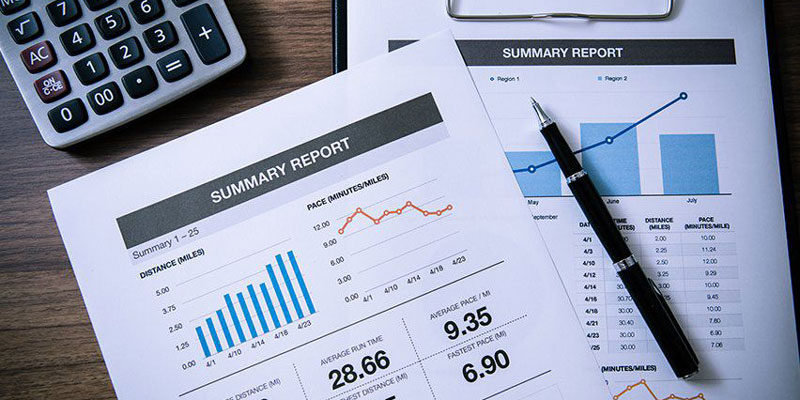Managing the merger and acquisition (M&A) process can be difficult, particularly regarding ascertaining a company's value. Knowing the elements influencing valuation helps business owners, not just but quite importantly. The final sale price and the negotiating process depend greatly on these value factors. Emphasizing qualities like financial stability, market position, development potential, and brand recognition will help vendors appeal most to possible consumers.
These factors provide purchasers with insightful analysis of a company's long-term value and possible returns on investment. This article will explore the main value factors to consider during the M&A sale process. Understanding these elements can help you ensure a successful, mutually beneficial transaction whether you want to acquire or sell a company. Let's review the fundamentals to help you make a wise, strategic M&A choice.

Key Valuation Drivers in the M&A Process
Here are key valuation drivers to consider in the M&A process. Understanding these factors is vital for maximizing value and negotiating successfully.
Financial Performance
One of the most important valuation factors in M&A is financial success. Buyers assess a company's financial recordsincluding trends in profitability and revenueby examining them. Usually, high and consistent profits boost a company's worth, attracting more people. On the other hand, companies with diminishing incomes could find it difficult to justify a higher value. Debt levels and cash flow measures, among other aspects of financial health, can also reveal financial sustainability. Understanding these factors helps consumers determine whether the company can support future expansion possibilities.
Market Position and Competitive Advantage
The M&A value of a firm is highly influenced by its market situation. A strong industry presence of companies usually translates into higher values. Buyers search for distinctive qualities distinguishing a company from rivals, such as brand reputation, devoted customer base, or exclusive technology. These components provide entrance barriers, therefore providing the company with an advantage. For example, a market leader in a high-demand industry has more negotiating leverage. Companies with a distinctive value proposition will be more resistant to competition and more appealing during sales.
Growth Potential
Another important determinant of a company's worth is future expansion possibility. Buyers are drawn to companies with great future possibilities, particularly in growing markets. They evaluate chances for expansion depending on fresh markets, goods, or services the business should investigate. Businesses with reasonable, attainable expansion strategies frequently have better values. Growth potential makes the company more tempting to investors of future rewards. Presenting a well-organized future expansion strategy helps a business appeal more in the M&A market. Prospective for sustainable development shows long-term profitability, a major motivation for any major buyer.
Intellectual Property and Proprietary Technology
Modern M&A negotiations benefit much from intellectual property (IP). Patents, trademarks, and proprietary technology set apart a company and provide great value. Reduced competition makes buyers view businesses with original intellectual property more interesting. Proprietary technology creates long-term value by often providing creative ideas and enhanced consumer experiences. IP assets provide a competitive edge and inspire purchasers on the company's capacity to keep a market share. Companies with original ideas or technological advancements usually have better values. Emphasizing IP assets during negotiations will greatly impact the selling price.

Customer Base and Retention Rate
Another crucial valuation factor in M&A is the clientele of a company. Strong, devoted consumers of companies usually translate into higher values for them. Loyal consumers guarantee consistent income, therefore reassuring buyers of stability. High rates of customer retention show that the company offers constant value. A diverse clientele lessens reliance on one client, therefore reducing risks. Companies with a high client concentration make consumers cautious since losing a significant client might affect income. Strong and varied customer bases help companies to be seen as less risky, which helps to influence their worth.
Management and Operational Efficiency
Determining a firm's M&A value depends on the effectiveness of operations and management. Seasoned management teams enhance the business's success. Investors look for businesses with competent, qualified leadership to guarantee flawless operations upon acquisition. Well-run companies are frequently more profitable, which lowers running risks for purchasers. Good management guarantees consistency, particularly during moments of transformation. Buyers are more likely to provide a premium if they feel the management team can propel expansion.
Industry Trends and Market Conditions
The worth of a company also depends on the larger industry environment. Companies in developing areas or expanding businesses can want more value. Buyers evaluate whether the long-term profitability of the sector corresponds with their own. A company positioned in a sector with great growth can draw more offers. In M&A markets, for example, technology or renewable energy companies find great demand. Enterprises in decreasing sectors could have reduced values independent of their internal capabilities. Market conditions, including economic stability, affect consumers' purchase readiness.
Financial and Operational Risks
Managing and spotting risks can affect the value of a business during an M&A transaction. Buyers evaluate hazards related to regulatory issues, market volatility, and corporate models. High-risk elements such as legal problems or debt could reduce the value of a business. On the other hand, businesses with strong risk control systems can get more value. Companies with well-documented risk-reducing strategies appeal to buyers since they guarantee stability. Companies can fetch better values by aggressively addressing risks. Showing tenacity and flexibility helps the business to negotiate M&A deals in a better posture.
Conclusion:
In conclusion, buyers and sellers depend on knowing the main valuation factors of the M&A process. Elements including financial performance, market position, development possibility, and brand repute influence the value of a firm. Highlighting these qualities and eliminating possible hazards can help sellers optimize their worth during discussions. Understanding these dynamics helps purchasers to see long-term profitability and investment possibility. Whether you want to buy or sell a company, a strong knowledge of these valuation factors can help you to make a good and profitable deal. Making wise M&A judgments depends on giving these factors top priority.







